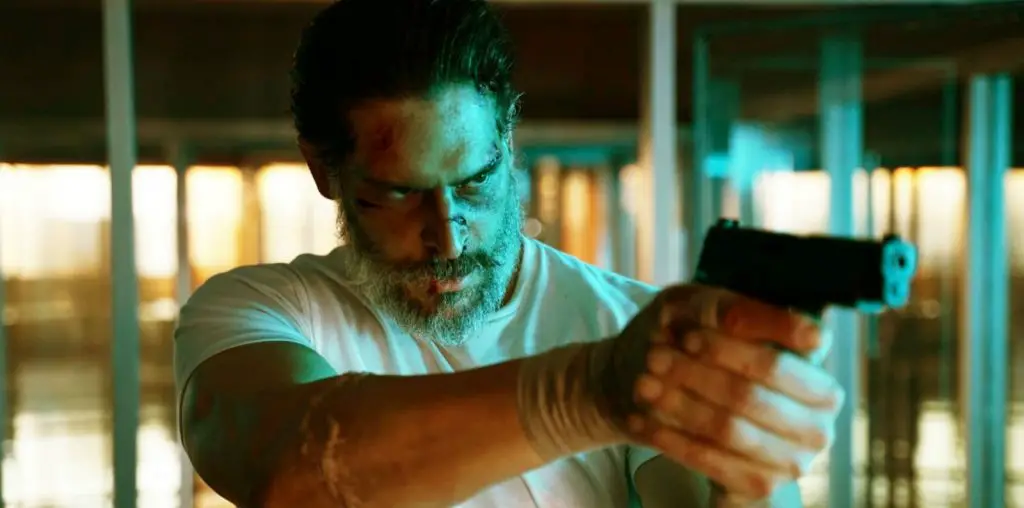
When filmmaker Werner Herzog convinced a group of scientists, naturalists and volcanists (as well as other scientific folk with various “ists” tagged on the end of their professions) to let him tag along with them in the frozen tundra of Antarctica, his pitch to them was simple: Herzog doesn’t understand nature. Or better, he doesn’t get why nature doesn’t behave in a way that would make more sense or at least, seem more like the way humans behave. From the first funny moments of Herzog describing his many questions regarding things he doesn’t “get” in nature, we realize we’re in for a nature doc unlike any other. In fact I’m not so sure “Encounters at the End of the World” isn’t simply a parody of the nature or science film dressed up like a documentary.
As fans of his work know, Herzog has always had more than a smidge of charlatan in him. But rather than act as if he doesn’t, Herzog embraces this aspect of his personality in his films, especially his documentaries. The trick is you have to be able to tell when Herzog is playing it straight and when he’s staging scenes or adding false narration over events to pull viewers legs or add previously nonexistent depth to a scene or shot. Throughout all the docs Herzog has made, there have always been elements of the false, but never have they been so funny as they are in “Encounters at the End of the World.”
At it’s core, “Encounters at the End of the World” is a documentary about the people who live and work on Antarctica. A truly terrifying no man’s land, it would take a crazy person to want to live there. When Herzog lands, the 5th largest continent is in the midst of the season where it stays light for five straight months and right away, Herzog puts his uncanny ability to find oddballs to use. We meet a philosopher who has found his way to Antarctica and now drives a forklift for a living. Another man has oddly shaped hands that apparently mean he is a direct descendent of Aztec or Mayan royalty. Now he works as a journeyman plumber in a place where frozen pipes are a given. Herzog also introduces us to several different scientists and divers who explore the world beneath the frozen sea discovering new species that could never survive anywhere else. Through it all, Herzog keeps his tongue planted firmly in his cheek and breaks a cardinal “rule” of docs as he frequently makes fun of and interrupts his subjects. But the thing about Herzog’s voice-over is, his accent and tone of voice convey an assuredness in which you’re sort of prone to believe anything he says is true even when it’s pretty clear he’s screwing with you. This becomes particularly clear and totally hilarious in a scene involving penguins, which is something Herzog tells us at the start of the film he has no desire to film.
As “Encounters at the End of the World” went on, it became clear to me that the people studying activity on Antarctica are embarking on a pretty pointless career. Sorry to say that, but it’s true. Just like any job in the world, if you can convince people that what you’re going to do will have an impact and maybe make money you can probably find some person or organization willing to fund you. For instance, what possible relevance could studying volcanoes in Antarctica have on the world at large? What importance can studying an iceberg that’s the size of Texas really have in our lifetime or even the lifetime of our great-grandchildren? Granted, I’m no scientist but really, what’s the point of studying a place that is uninhabitable and meant to be left alone? The main thought or impression I got from Antarctica was that it’s not supposed to be lived on. It’s a frigging frozen wasteland! Herzog more than alludes to this as well as he runs off on a tangent about how maybe the world is better off if there’s some undiscovered territory, but man can’t leave well enough alone. We must discover and conquer.
But as I pondered this fairly negative assessment of the place and the people we meet in the film, I started trying to look at them another way. I wanted to see what sense I could make of their choices, if any. Their seemingly pointless actions made me cast negativity towards them because what kind of fool would want to spend his life working and sleeping in a small shack in the middle of the south pole while studying the breeding habits of seals indigenous to Antarctica? What kind of moron would decide to dedicate themselves to growing fruits and vegetables via hydroponic lights for those who live in what was supposed to be an uninhabitable place? The answer I came up with hit me like a ton of bricks.
The same people that would do these seemingly pointless jobs are the same kind of people that would drag a ship over a mountain in order to add a sense of realism to a film. These are the same people that would not once but twice descend into a deep dark jungle with an actor so insane he could (and would) kill you if provoked. Then, after surviving that, continue to work with a person you simply cannot stand because it’s the right person for the job? Werner Herzog is that kind of crazy person and in fact, any filmmaker who would dare take on the Herculean task of making a feature film can also consider themselves akin to the professional vagabonds of Antarctica. While I still stand by my thought that “Encounters at the Edge of the World” is as much a parody of successful docs like “March of the Penguins” and “An Inconvenient Truth,” I also think Herzog is making a case for those crazy enough to follow their dreams, even when they take you to the end of the earth. Literally.

